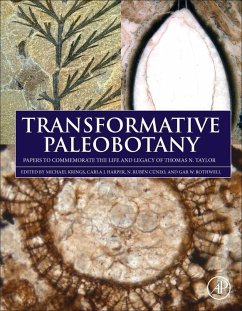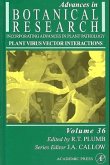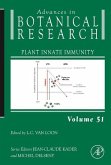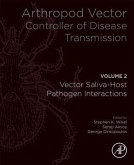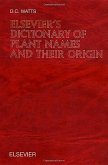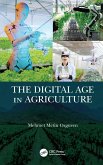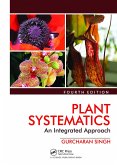Transformative Paleobotany
Papers to Commemorate the Life and Legacy of Thomas N. Taylor
Herausgegeben:Krings, Michael; Harper, Carla J.; Cuneo, Nestor Ruben; Rothwell, Gar W.
Transformative Paleobotany
Papers to Commemorate the Life and Legacy of Thomas N. Taylor
Herausgegeben:Krings, Michael; Harper, Carla J.; Cuneo, Nestor Ruben; Rothwell, Gar W.
- Gebundenes Buch
- Merkliste
- Auf die Merkliste
- Bewerten Bewerten
- Teilen
- Produkt teilen
- Produkterinnerung
- Produkterinnerung
Transformative Paleobotany: Papers to Commemorate the Life and Legacy of Thomas N. Taylor features the broadest possible spectrum of topics analyzing the structure, function and evolution of fossil plants, microorganisms, and organismal interactions in fossil ecosystems (e.g., plant paleobiography, paleoecology, early evolution of land plants, fossil fungi and microbial interactions with plants, systematics and phylogeny of major plant and fungal lineages, biostratigraphy, evolution of organismal interactions, ultrastructure, Antarctic paleobotany). The book includes the latest research from…mehr
![Plant Virus Vector Interactions Plant Virus Vector Interactions]() R. T. Plumb (Volume ed.)Plant Virus Vector Interactions139,99 €
R. T. Plumb (Volume ed.)Plant Virus Vector Interactions139,99 €![Plant Innate Immunity Plant Innate Immunity]() Plant Innate Immunity129,99 €
Plant Innate Immunity129,99 €![Arthropod Vector: Controller of Disease Transmission, Volume 2 Arthropod Vector: Controller of Disease Transmission, Volume 2]() Arthropod Vector: Controller of Disease Transmission, Volume 280,99 €
Arthropod Vector: Controller of Disease Transmission, Volume 280,99 €![Elsevier's Dictionary of Plant Names and Their Origin Elsevier's Dictionary of Plant Names and Their Origin]() D.C. WattsElsevier's Dictionary of Plant Names and Their Origin195,99 €
D.C. WattsElsevier's Dictionary of Plant Names and Their Origin195,99 €![Nonlinear Dynamics and Chaos in Agricultural Systems Nonlinear Dynamics and Chaos in Agricultural Systems]() K. SakaiNonlinear Dynamics and Chaos in Agricultural Systems97,99 €
K. SakaiNonlinear Dynamics and Chaos in Agricultural Systems97,99 €![The Digital Age in Agriculture The Digital Age in Agriculture]() Mehmet OzguvenThe Digital Age in Agriculture147,99 €
Mehmet OzguvenThe Digital Age in Agriculture147,99 €![Plant Systematics Plant Systematics]() Gurcharan SinghPlant Systematics56,99 €
Gurcharan SinghPlant Systematics56,99 €-
-
-
Sections are richly illustrated, well concepted, and characterize and summarize the most up-to-date understanding of this respective and important field of study.
Features electronic supplements, such as photographs, diagrams, tables, flowcharts and links to other websites Includes in-depth illustrations with diagrams, flowcharts and photographic plates (many in color for enhanced utility), tables and graphs
- Produktdetails
- Verlag: Academic Press
- Artikelnr. des Verlages: 71251268
- Seitenzahl: 732
- Erscheinungstermin: 27. Juli 2018
- Englisch
- Abmessung: 284mm x 228mm x 43mm
- Gewicht: 2241g
- ISBN-13: 9780128130124
- ISBN-10: 0128130121
- Artikelnr.: 51570064
- Verlag: Academic Press
- Artikelnr. des Verlages: 71251268
- Seitenzahl: 732
- Erscheinungstermin: 27. Juli 2018
- Englisch
- Abmessung: 284mm x 228mm x 43mm
- Gewicht: 2241g
- ISBN-13: 9780128130124
- ISBN-10: 0128130121
- Artikelnr.: 51570064
Carla J. Harper is an Alexander von Humboldt-Foundation postdoctoral research fellow at the Bavarian State Collection for Palaeontology and Geology (SNSB-BSPG) and Ludwig- Maximilians-Universität Munich, Germany. She also holds a research associate position at the Biodiversity Institute and Natural History Museum at the University of Kansas. She received her Ph.D. in ecology and evolutionary biology from the University of Kansas. Her research interests include the biology and ecology of microorganisms and biotas in Permian-Jurassic ecosystems of Antarctica and late Paleozoic of Europe, symbiotic systems through time, as well as the biology, geochemistry, and evolution of fossil microbes.N. Ruben Cuneo is a Prinicipal Researcher at the National Research Council of Argentina, and Director of the Museo Paleontológico E. Feruglio in Trelew. He received his Ph.D. in Geology from the University of Buenos Aires. His research interests include fossil floras from Patagonia and Antarctica ranging from the Permian through the Eocene in aspects related
with their systematics, paleoecology, bio-chronostratigraphy and paleoclimatology.
LATE PALEOZOIC AND MESOZOIC PLANTS AND FLORAS 6. Lower Permian flora of the Sanzenbacher Ranch, Clay County, Texas 7. Permian ginkgophytes of Angaraland 8. Glossopterid plant remains in permineralization: What do they tell us? 9. Pachytestopsis tayloriorum gen. et sp. nov., an anatomically preserved glossopterid seed from the Lopingian of Queensland, Australia 10. A Triassic Mystery Solved: Fertile Pekinopteris from the Triassic of North Carolina, U.S.A. 11. Enigmatic, structurally preserved stems from the Triassic of central Europe: A fern or not a fern?
PALEOBIOGEOGRAPHY, BIOLOGY, AND PHYLOGENETIC RELATIONSHIPS OF PLANTS 12. A comprehensive assessment of the fossil record of liverworts in amber 13. Aerodynamics of Fossil Pollen: Implications for Understanding Pollination Biology in Extinct Plants 14. Escapia gen. nov.: Morphological evolution, paleogeographic diversification, and the environmental distribution of marattialean ferns through time 15. Heterosporous ferns from Patagonia: The case of Azolla 16. Why are bryophytes so rare in the fossil record? A spotlight on taphonomy and fossil preservation 17. Fossil seeds with affinities to Austrobaileyales and Nymphaeales from the Early Cretaceous (early to middle Albian) of Virginia and Maryland, U.S.A: new evidence for extensive extinction near the base of the angiosperm tree
FOSSIL MICROORGANISMS 18. Reactive Oxygen Defense Against Cellular Endoparasites and the Origin of Eukaryotes 19. Fossils of arbuscular mycorrhizal fungi give insights into the history of a successful partnership with plants 20. Looking for arbuscular mycorrhizal fungi (AMF) in the fossil record - an illustrated guide 21. Exceptional preservation of sessile, long-stalked microorganisms in the Lower Devonian Windyfield chert (Scotland) 22. Morphological convergence in forest microfungi provides a proxy for Paleogene forest structure 23. Ediacarans, protolichens, and lichen-derived Penicillium: A critical reassessment of the evolution of lichenization in fungi
ANTARCTIC PALEOBOTANY 24. Polar Regions of the Mesozoic-Paleogene greenhouse world as refugia for relict plant groups 25. Leaf venation density and calculated physiological characteristics of fossil leaves from the Permian of Gondwana 26. Functional significance of cambial development in Vertebraria roots: How do unusual xylem traits serve life at a high latitude? 27. Cretaceous to Paleogene vegetation transition in Antarctica
LATE PALEOZOIC AND MESOZOIC PLANTS AND FLORAS 6. Lower Permian flora of the Sanzenbacher Ranch, Clay County, Texas 7. Permian ginkgophytes of Angaraland 8. Glossopterid plant remains in permineralization: What do they tell us? 9. Pachytestopsis tayloriorum gen. et sp. nov., an anatomically preserved glossopterid seed from the Lopingian of Queensland, Australia 10. A Triassic Mystery Solved: Fertile Pekinopteris from the Triassic of North Carolina, U.S.A. 11. Enigmatic, structurally preserved stems from the Triassic of central Europe: A fern or not a fern?
PALEOBIOGEOGRAPHY, BIOLOGY, AND PHYLOGENETIC RELATIONSHIPS OF PLANTS 12. A comprehensive assessment of the fossil record of liverworts in amber 13. Aerodynamics of Fossil Pollen: Implications for Understanding Pollination Biology in Extinct Plants 14. Escapia gen. nov.: Morphological evolution, paleogeographic diversification, and the environmental distribution of marattialean ferns through time 15. Heterosporous ferns from Patagonia: The case of Azolla 16. Why are bryophytes so rare in the fossil record? A spotlight on taphonomy and fossil preservation 17. Fossil seeds with affinities to Austrobaileyales and Nymphaeales from the Early Cretaceous (early to middle Albian) of Virginia and Maryland, U.S.A: new evidence for extensive extinction near the base of the angiosperm tree
FOSSIL MICROORGANISMS 18. Reactive Oxygen Defense Against Cellular Endoparasites and the Origin of Eukaryotes 19. Fossils of arbuscular mycorrhizal fungi give insights into the history of a successful partnership with plants 20. Looking for arbuscular mycorrhizal fungi (AMF) in the fossil record - an illustrated guide 21. Exceptional preservation of sessile, long-stalked microorganisms in the Lower Devonian Windyfield chert (Scotland) 22. Morphological convergence in forest microfungi provides a proxy for Paleogene forest structure 23. Ediacarans, protolichens, and lichen-derived Penicillium: A critical reassessment of the evolution of lichenization in fungi
ANTARCTIC PALEOBOTANY 24. Polar Regions of the Mesozoic-Paleogene greenhouse world as refugia for relict plant groups 25. Leaf venation density and calculated physiological characteristics of fossil leaves from the Permian of Gondwana 26. Functional significance of cambial development in Vertebraria roots: How do unusual xylem traits serve life at a high latitude? 27. Cretaceous to Paleogene vegetation transition in Antarctica

